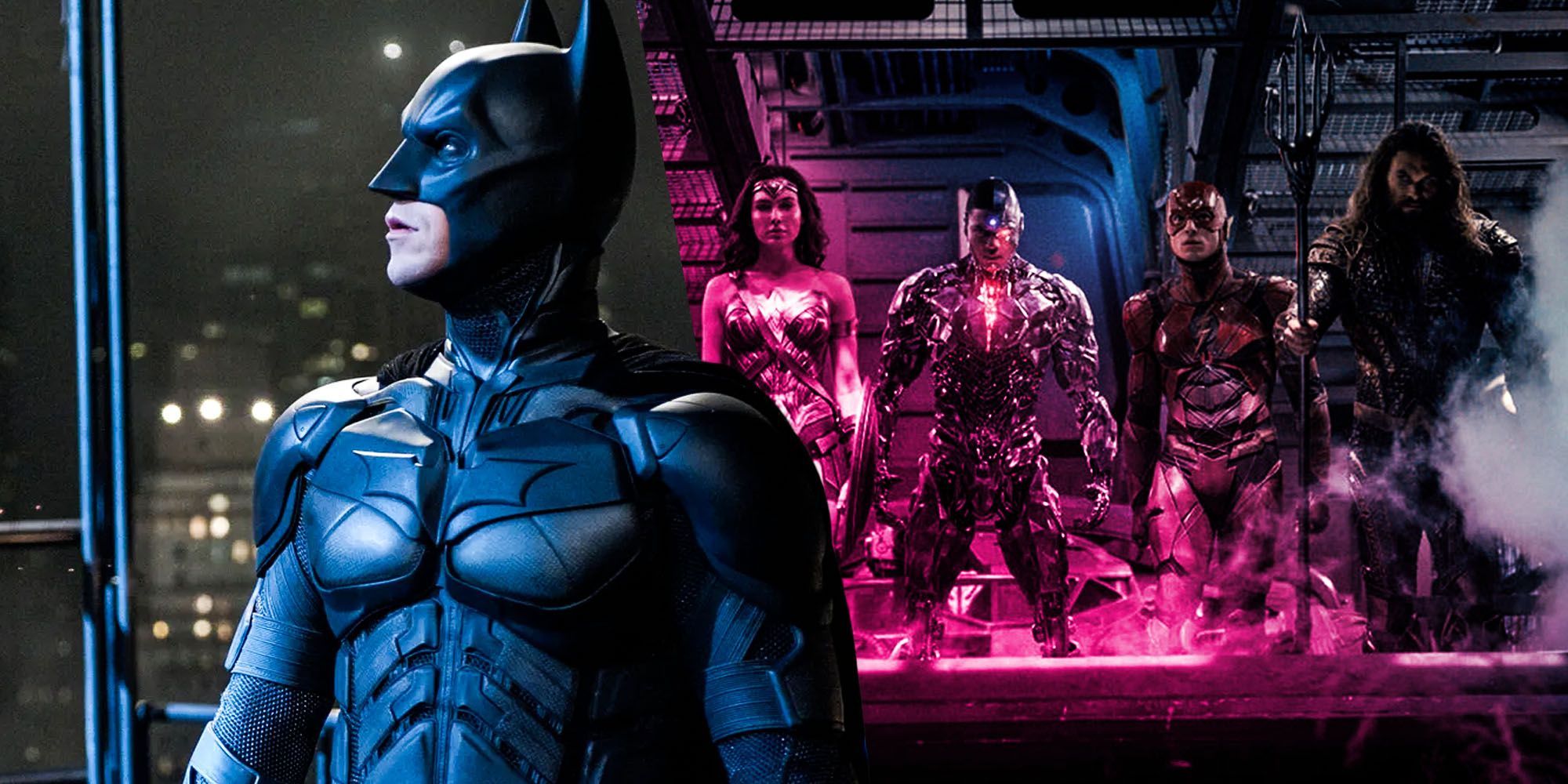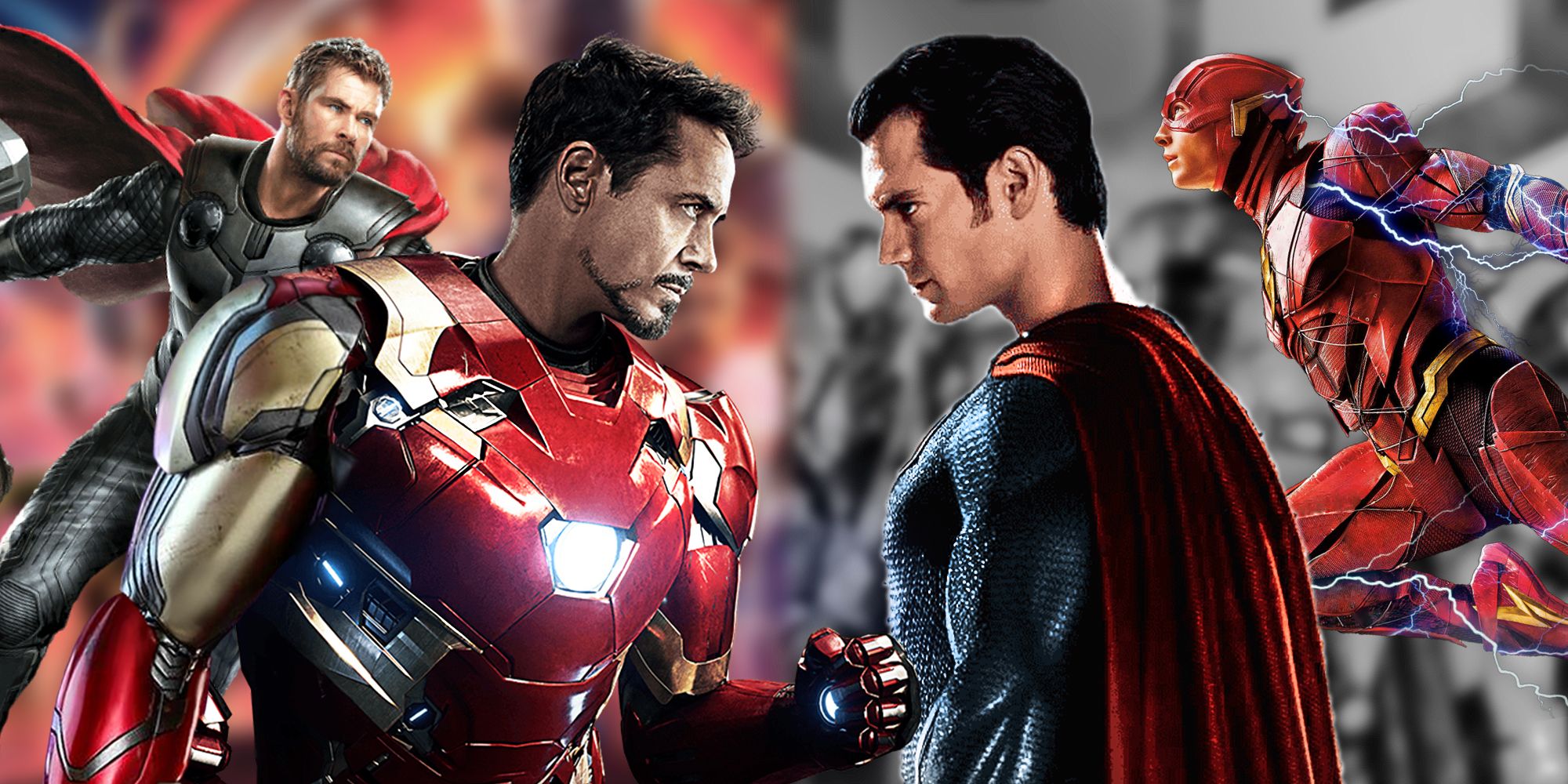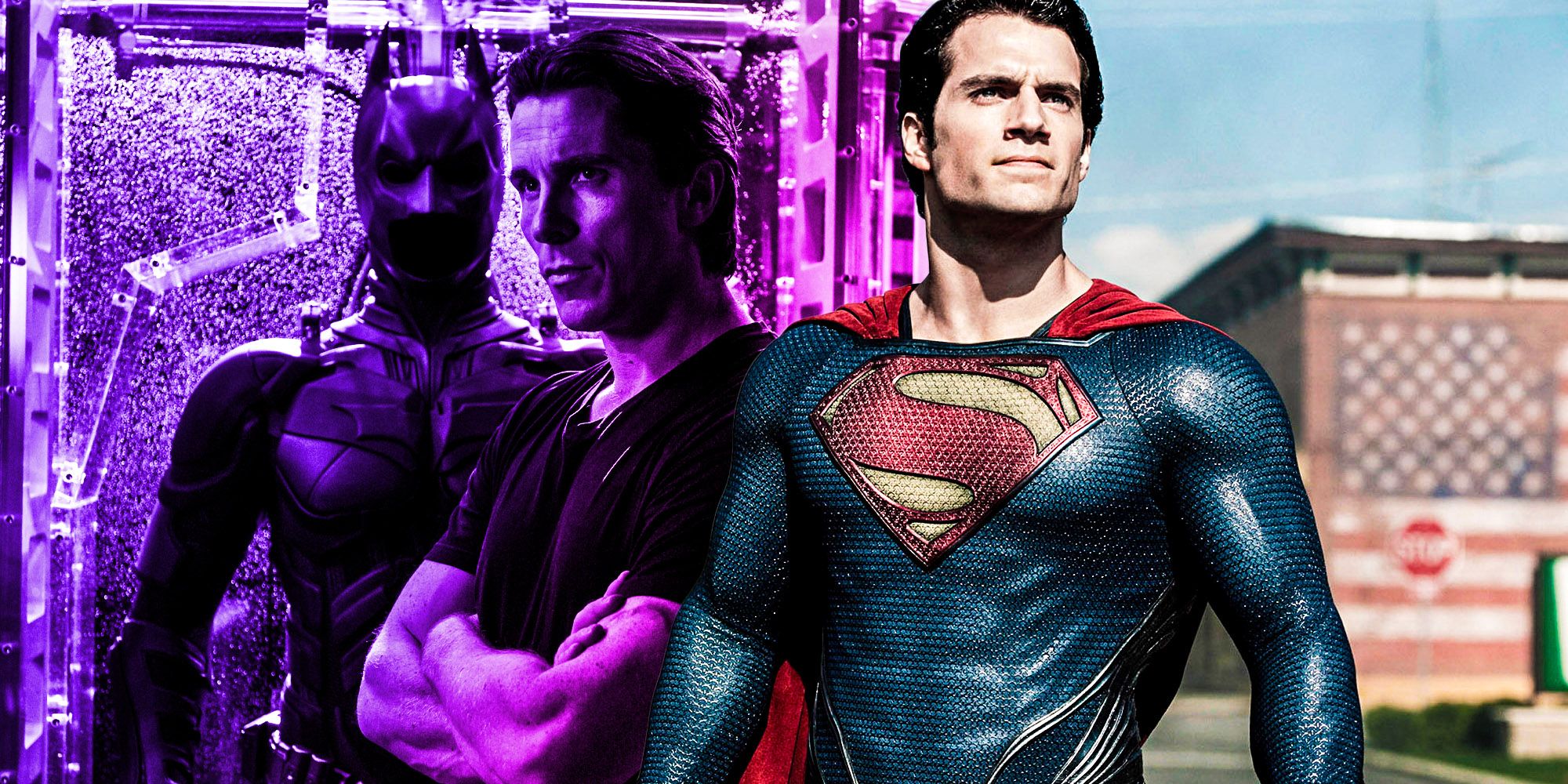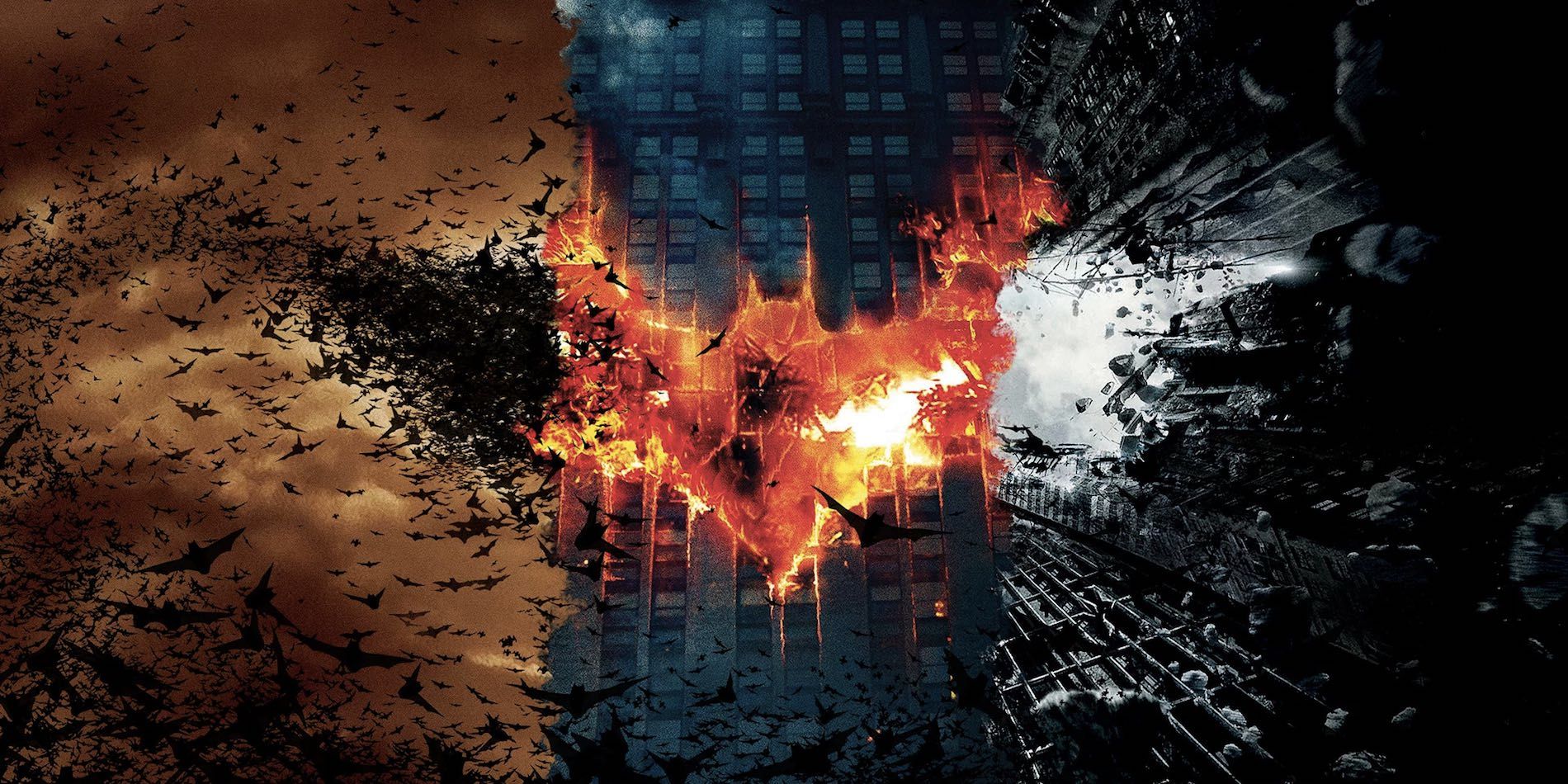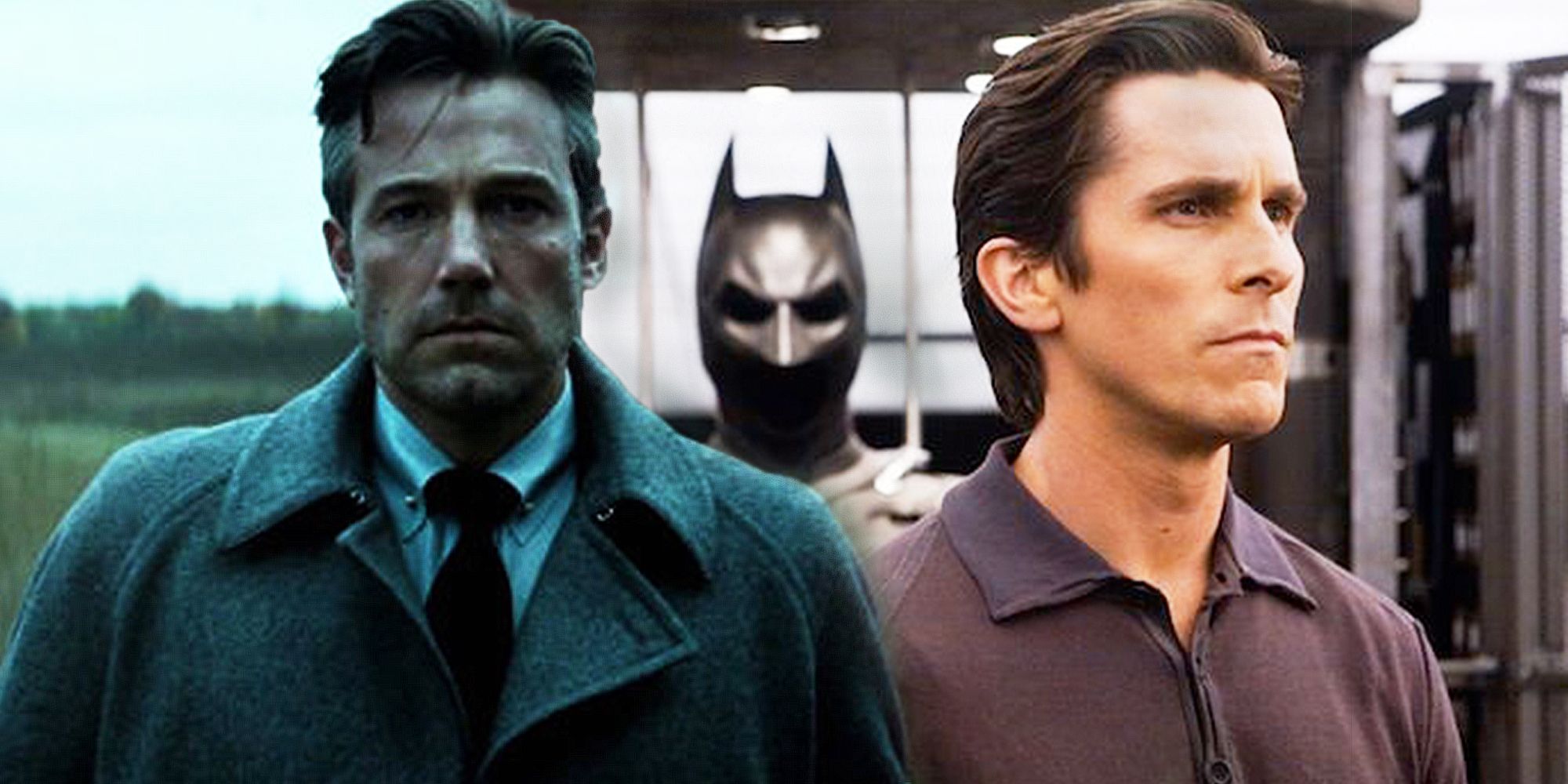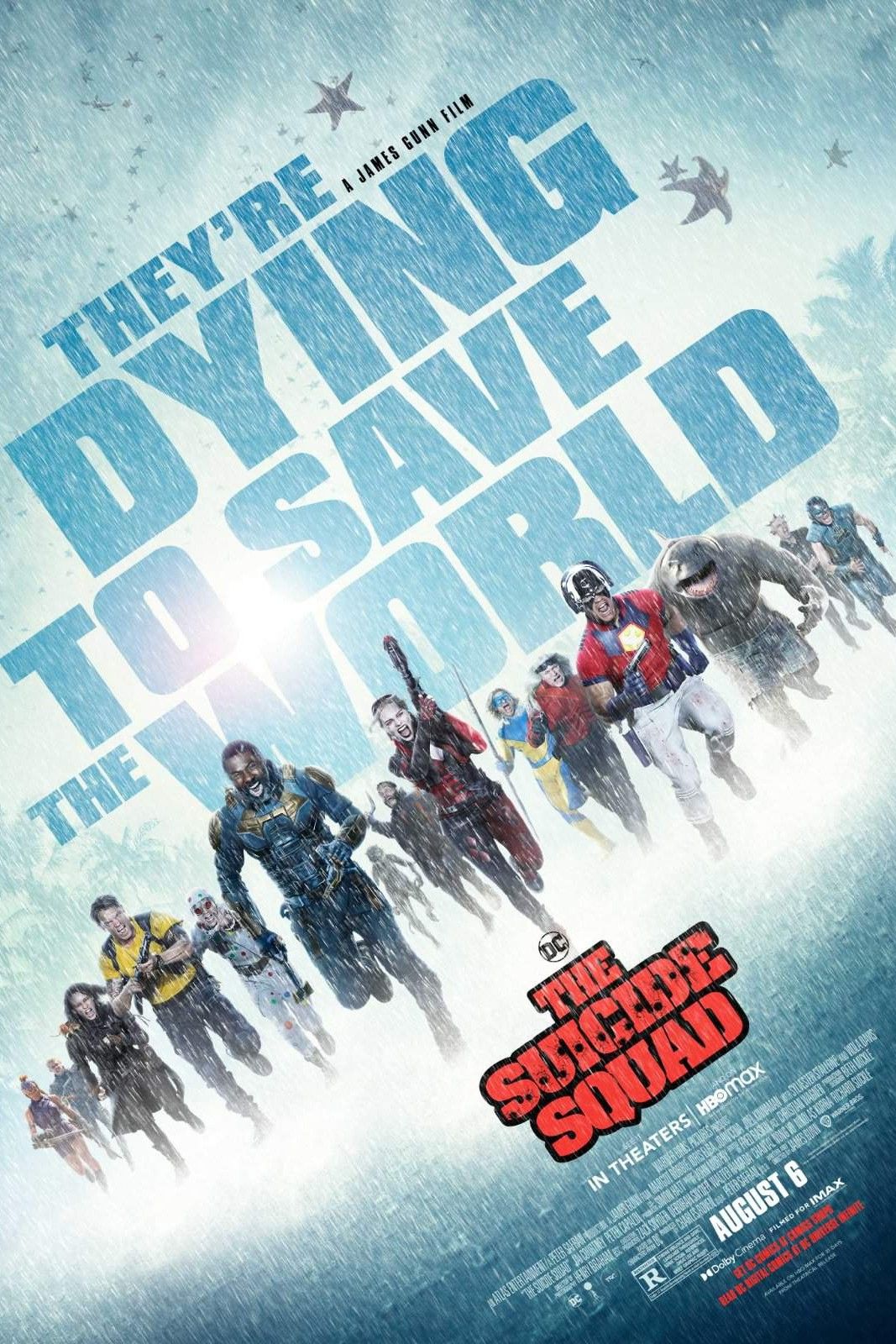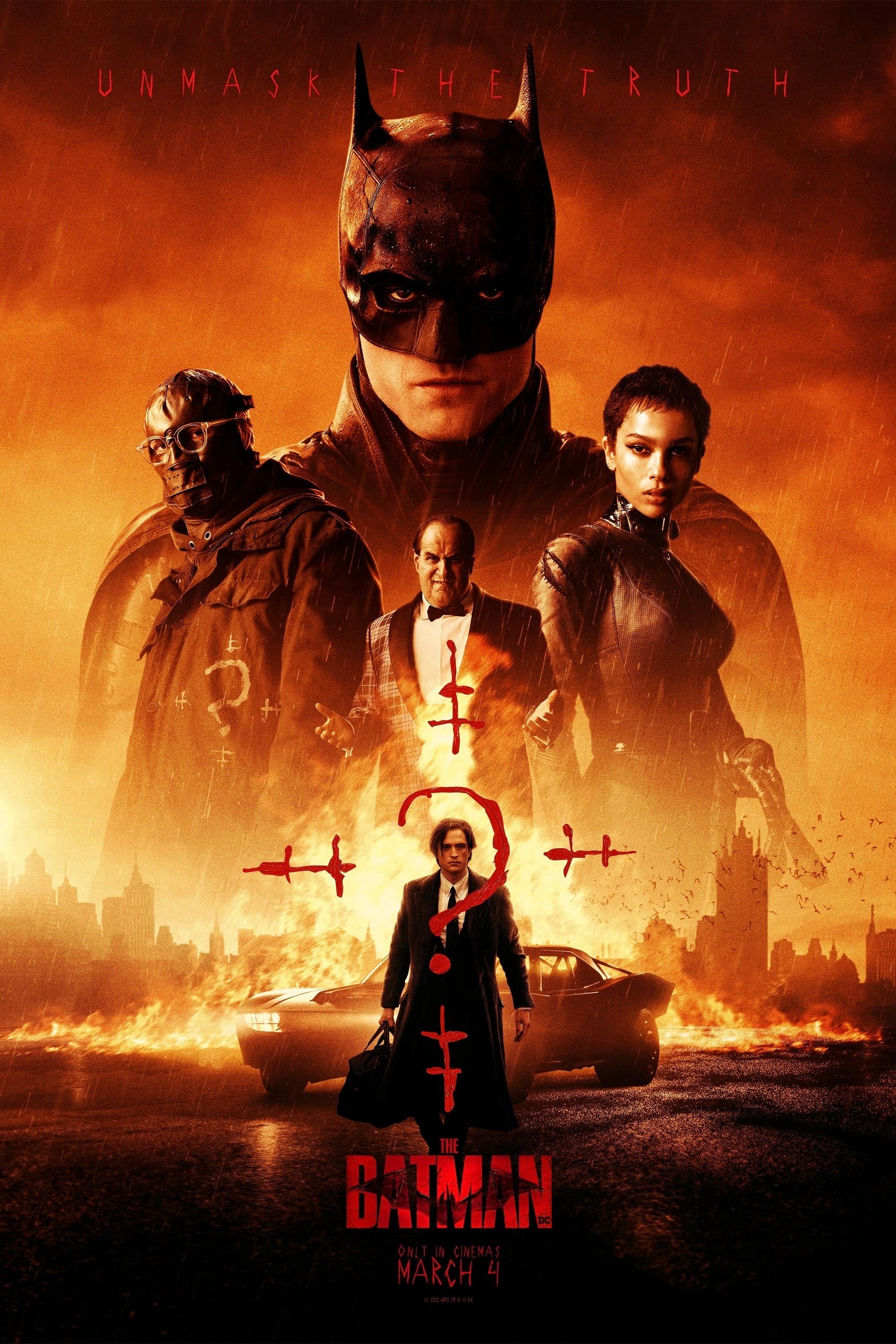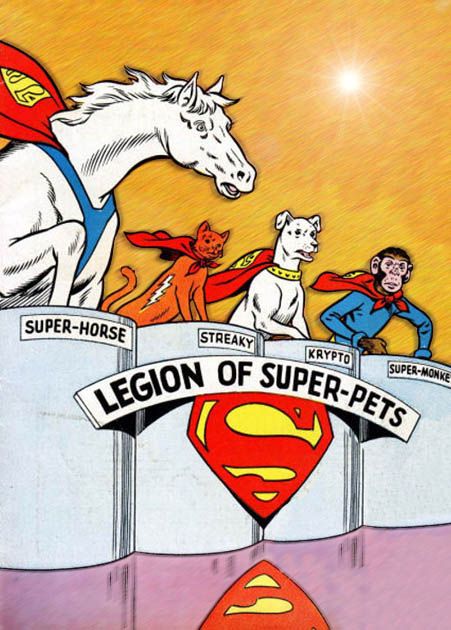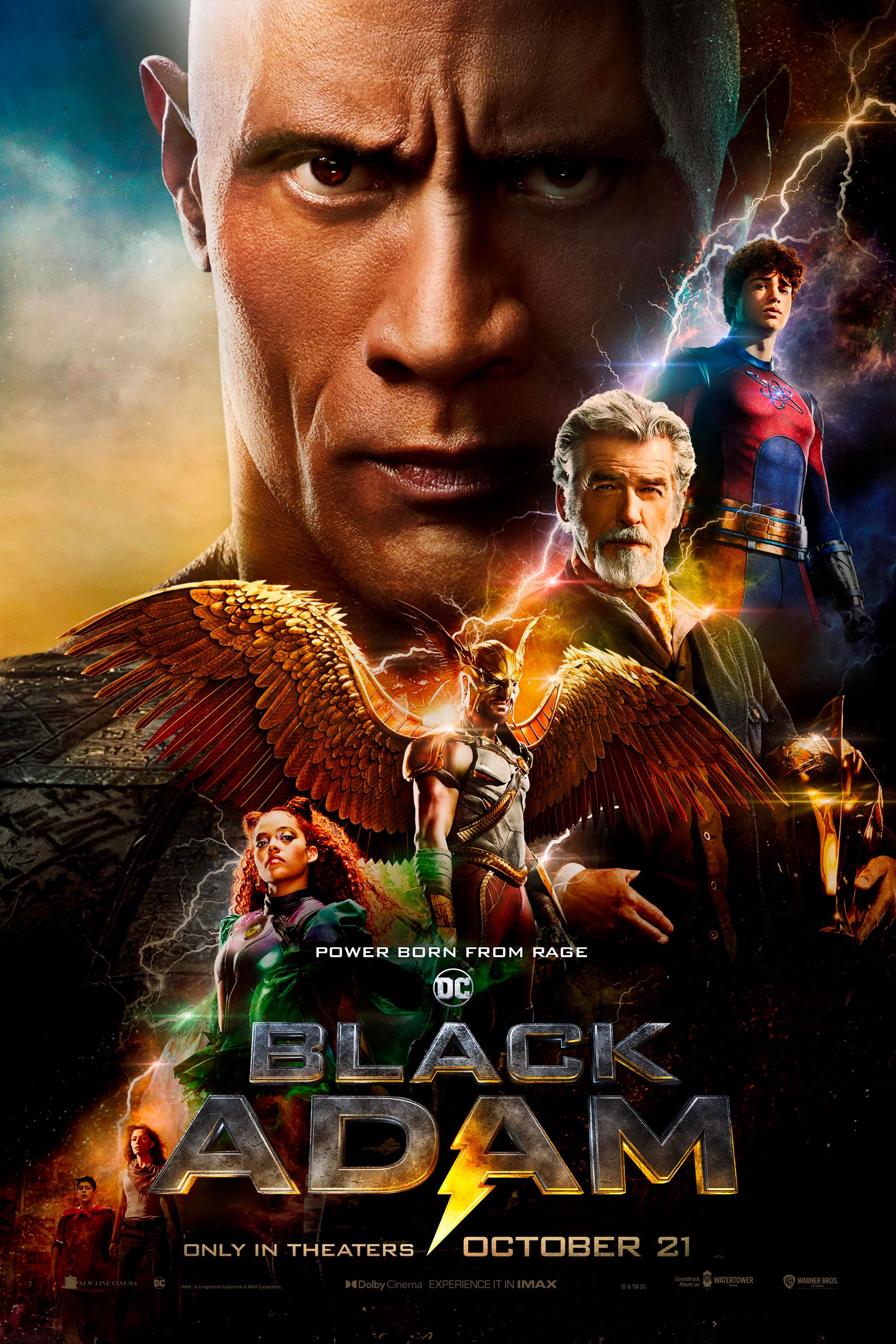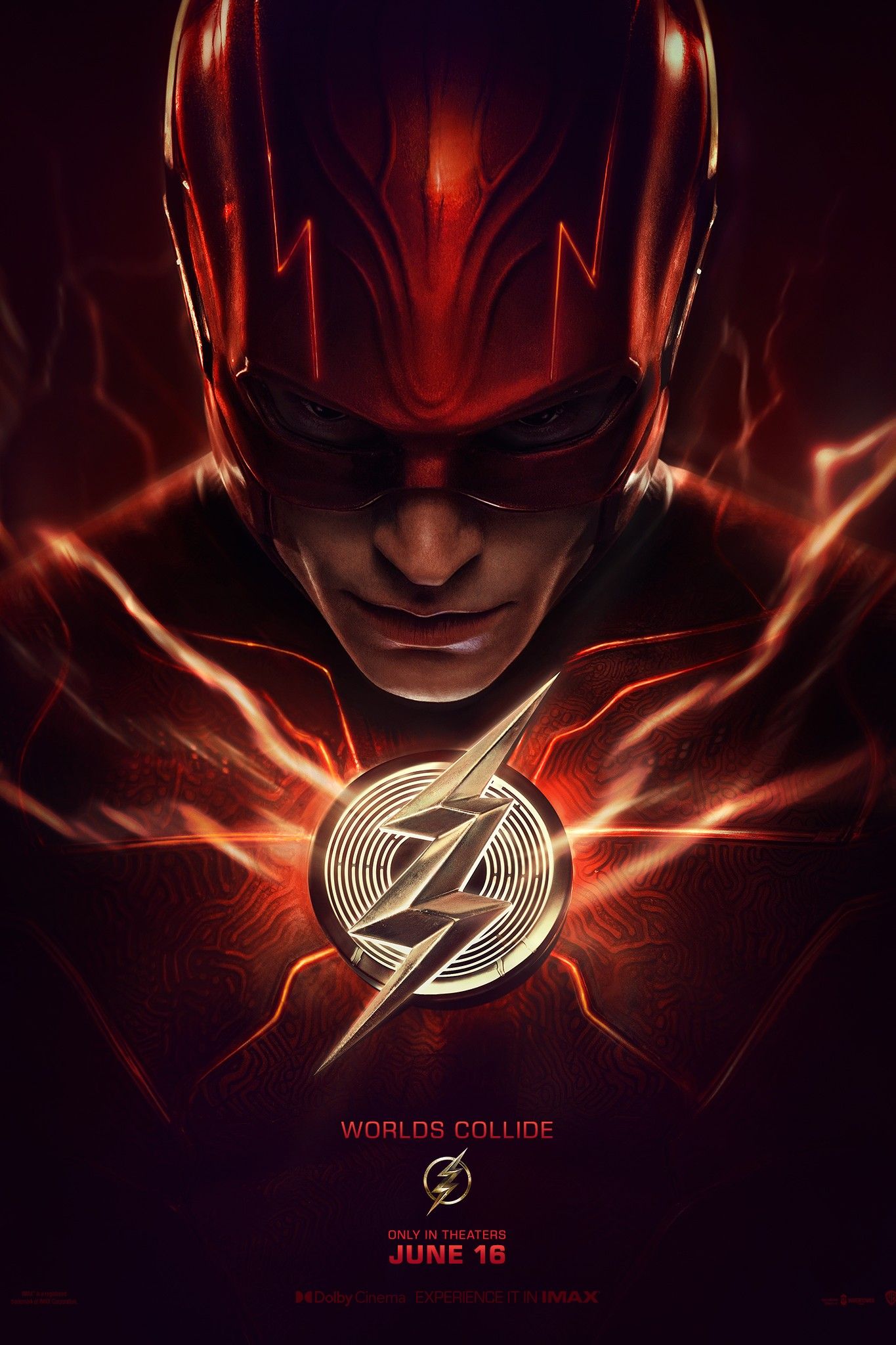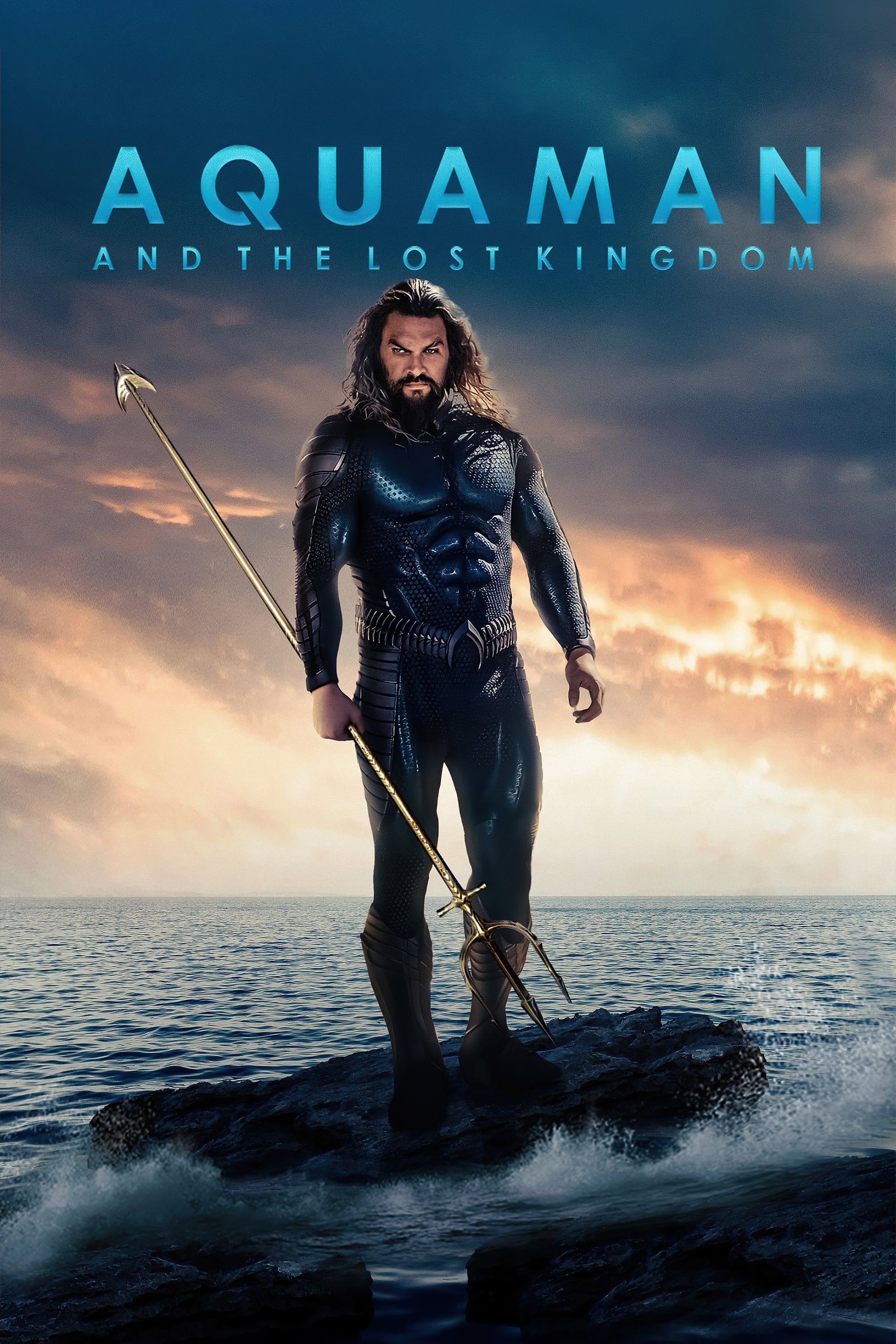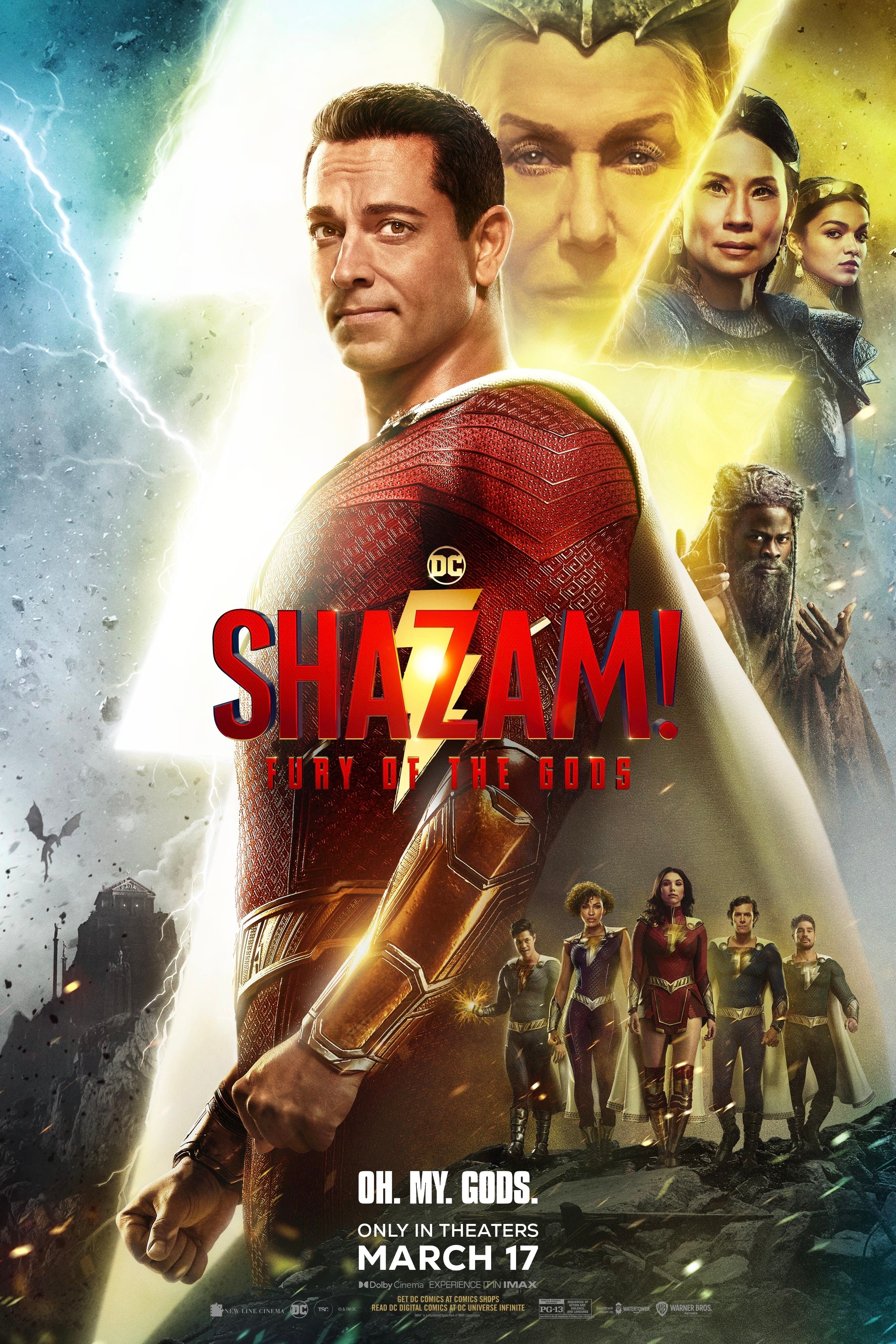The DC Extended Universe could've connected to Christopher Nolan's Dark Knight trilogy, and that decision would've fixed the DCEU's Marvel problem. Before the Marvel Cinematic Universe really took off, the standard in Hollywood was to let each superhero franchise stand on its own. This is how Richard Donner and Tim Burton adapted Superman and Batman, Sam Raimi tackled Spider-Man, and Fox brought the X-Men to the screen. The standalone nature of these stories is also how Christopher Nolan approached the Dark Knight trilogy, giving him complete creative freedom to tell his story without worrying about what it meant for any other films.
At the same time that Nolan made his Dark Knight films, the popularity of the MCU changed what fans wanted to see from various superhero franchises. The idea of a cohesive universe where multiple franchises exist within quickly became the expectation after The Dark Knight Rises released. Warner Bros. initially didn't have plans to follow the MCU model and hired Zack Snyder to direct their Superman reboot, with Nolan serving as a producer on Man of Steel. The movie brought a brand new take on the Kryptonian hero to the big screen, and it wasn't long before its place in launching the DCEU became official. Snyder's Man of Steel follow-up, Batman v Superman: Dawn of Justice, introduced Wonder Woman, a new Batman, and set up an expansive universe based on DC Comics.
However, there was a chance that Man of Steel and the DCEU would be connected to the Dark Knight trilogy. Snyder revealed early conversations about the universe with Nolan led them to consider using Joseph Gordon-Levitt's John 'Robin' Blake as this universe's Batman. They ultimately decided that such a connection wouldn't work for the story Snyder wanted to tell. That reasoning makes sense, but tying the DCEU to the Dark Knight trilogy could've solved the universe's Marvel problem.
The DCEU's Biggest Problem Was Catching Up To Marvel
The DCEU's path to success has not been easy, and the biggest problem Warner Bros. and DC Films have repeatedly run into is trying to catch up to Marvel Studios. By the time Man of Steel came out in 2013, the MCU was seven movies deep. Marvel Studios was still riding high after The Avengers shattered box office expectations as it earned $1.5 billion worldwide and firmly established a massive fanbase for the MCU. Furthermore, Iron Man 3 was in the midst of its own billion-dollar box office run. Man of Steel stood apart from the MCU's offerings tonally (much to the chagrin of some viewers), but it still was a box office success after earning $668 million worldwide. However, that performance seemed like a disappointment to many considering what Marvel's movies were generating at the same time.
The financial success of the MCU gave Hollywood a clear look at the lucrative potential of Marvel's shared universe model. Just about every other studio began developing ideas for how its biggest pieces of intellectual property could support a cinematic universe, and WB wanted to take a shot at it with DC. Zack Snyder was already making plans for a five-movie story revolving around Superman, which included three Justice League movies. This was all Snyder originally had planned for his DC universe, but the success of the MCU drove WB to push for more.
By the fall of 2014, WB announced a full slate of DC films that would be released in theaters between 2016 and 2020. Marvel Studios ironically did the same thing a few weeks later. WB and DC managed to deliver on the first few films of its slate, as Batman v Superman, Suicide Squad, Wonder Woman, and Justice League all came out as scheduled. However, WB's obsession with catching Marvel drove them to interfere with how creators made the movies. They ordered massive reshoots and a new edit of Suicide Squad, but audiences largely disliked the movie once it was released. The reception to BvS also pushed the studio to demand changes to Snyder's Justice League, leading to him exiting the film after the death of his daughter. Aquaman and Shazam! came out in 2018 and 2019 as expected, but were tonally similar to the MCU instead of what Snyder had established. Meanwhile, The Flash is just now getting off the ground at long last, and fans are still waiting for Cyborg, Green Lantern Corps, and another Justice League to get made.
How Connecting To The Dark Knight Could've Fixed The Issue
Warner Bros.'s interest in building an interconnected DC movie universe was shared by fans who wanted to see a giant cohesive franchise with their favorite DC heroes and villains on par with the MCU. That's why the decision to link the DCEU to the Dark Knight trilogy could've fixed its Marvel problem. Christopher Nolan wasn't planning for The Dark Knight Rises to lead into Man of Steel, but the Batman trilogy would work as a starting point for the DCEU retroactively. Nolan's grounded approach to the Dark Knight aligned with Snyder's take on Superman, and it completely changes the responsibility put on Man of Steel's shoulders.
Separating Man of Steel from the Dark Knight trilogy meant that it needed to introduce Superman and a new version of the DC universe. However, if the two DC franchises were connected, the movie then becomes the fourth film in an established franchise that audiences worldwide already largely adore. It shifts its responsibility to pushing the universe forward by introducing Superman and more comic book elements to exist in the Dark Knight universe. There's even the potential this could've worked in Man of Steel's favor in terms of its general reception.
The DCEU Would've Had Bigger Clout To Start With
It's no secret that Zack Snyder's DC movies were quite polarizing. Nolan's Dark Knight trilogy isn't perfect by any means, but it is quite beloved by fans. Batman Begins is seen as an excellent reintroduction to the iconic character, and The Dark Knight is often referred to as the best comic book movie ever made. The Dark Knight Rises is a bit more divisive, but it still was a massively successful film. Much like the passionate fanbase Snyder has cultivated over his career, Nolan and the Dark Knight trilogy have a similar following. So if Snyder connected the Dark Knight movies to the DCEU, it puts Man of Steel and future DCEU movies in a position where they could build on that adoration. Fans might be more forgiving to aspects of the films they didn't like because it exists in that same universe as Nolan's classics.
Furthermore, this shifts the narrative about the track record of the DCEU significantly. There is often the debate about how many DCEU movies are either well-reviewed or financially successful. The general perception is that the universe has struggled to deliver movies that accomplish both such goals. Some would argue this is due to a bias against Snyder's work and his take on DC characters. The truth is that after eight DCEU movies, Wonder Woman and Aquaman are the only ones that most will agree succeeded at the box office and in terms of how much people like them. This changes if the Dark Knight trilogy is part of the fold. All three entries received great reviews, and The Dark Knight and The Dark Knight Rises each made over $1 billion.
How The DCEU Would've Looked Different With TDK In Canon
If Snyder, Nolan, WB, and DC had decided to connect the Dark Knight trilogy to the DCEU, there would've been plenty of major differences about what happened next. The biggest difference to the DCEU canon would be what happened with Bruce Wayne/Batman. Ben Affleck never would've been cast as the billionaire hero, and the only chance for Bruce Wayne to be involved would be bringing Christian Bale back at some point. However, the plan would've seen Joseph Gordon-Levitt take on the mantle and play a very different Batman than audiences have seen before. Additionally, it could mean that Jared Leto never played Joker in Suicide Squad, or at least that his version would not be such a departure from what Heath Ledger did previously. Jeremy Irons similarly never would've been cast as Alfred Pennyworth, with the universe requiring Michael Caine to reprise the role if Batman's butler still needed to be involved.
This also would've dramatically changed the DCEU stories that Snyder told. Man of Steel's Wayne Industries Easter egg becomes a connection to Nolan's movies instead of a tease of what could come next. Meanwhile, a great deal of Batman v Superman's plot would need to change, with Joseph Gordon-Levitt's Batman being completely different from what Snyder did with Affleck. This would likely mean a new motivation behind Batman and Superman fighting, and it'd also ensure the much-maligned Martha moment in the climax wouldn't happen. That is unless Snyder's vision was enough to convince Bale to return to as Batman again, which would've made Batman v Superman an even bigger deal and an easy billion-dollar hit.
It's also fun to consider the possibility of what Nolan's role would be in the DCEU if they made this connection. Snyder and Nolan worked closely on Man of Steel, so would Nolan continue to provide feedback and advice on where the story would go next? It'd make sense since this version of the DCEU would continue his trilogy and characters forward. Depending on how audiences reacted to this new-look universe, there is even the chance Nolan might have returned to direct a movie at some point. The DCEU put a lot on Snyder's shoulders early on — Nolan could've stepped in to alleviate some of that burden by tackling either Batman v Superman or Justice League. Since none of this did happen, fans will just have to dream about what could've been if the DCEU and Dark Knight trilogy were connected.

